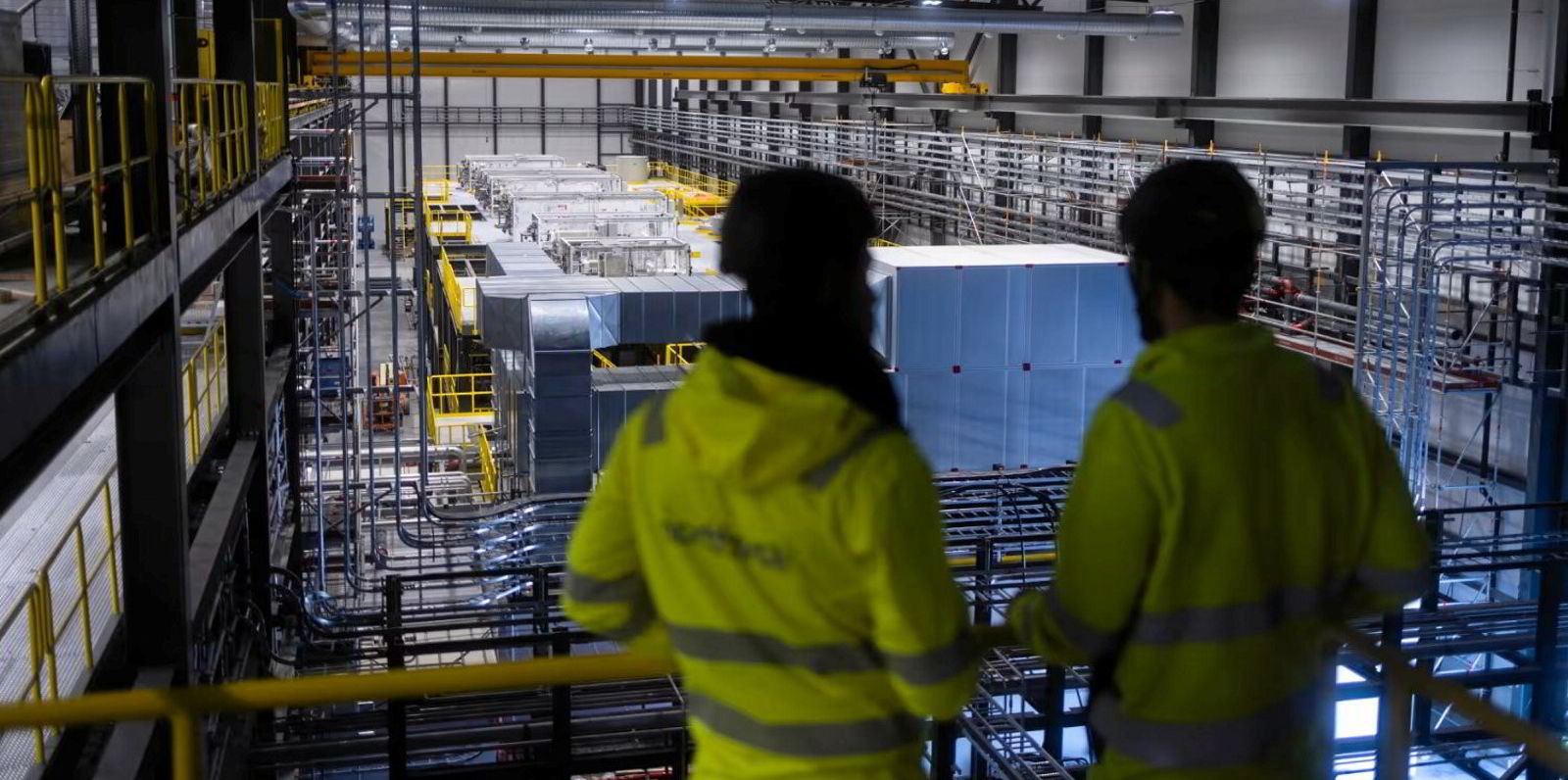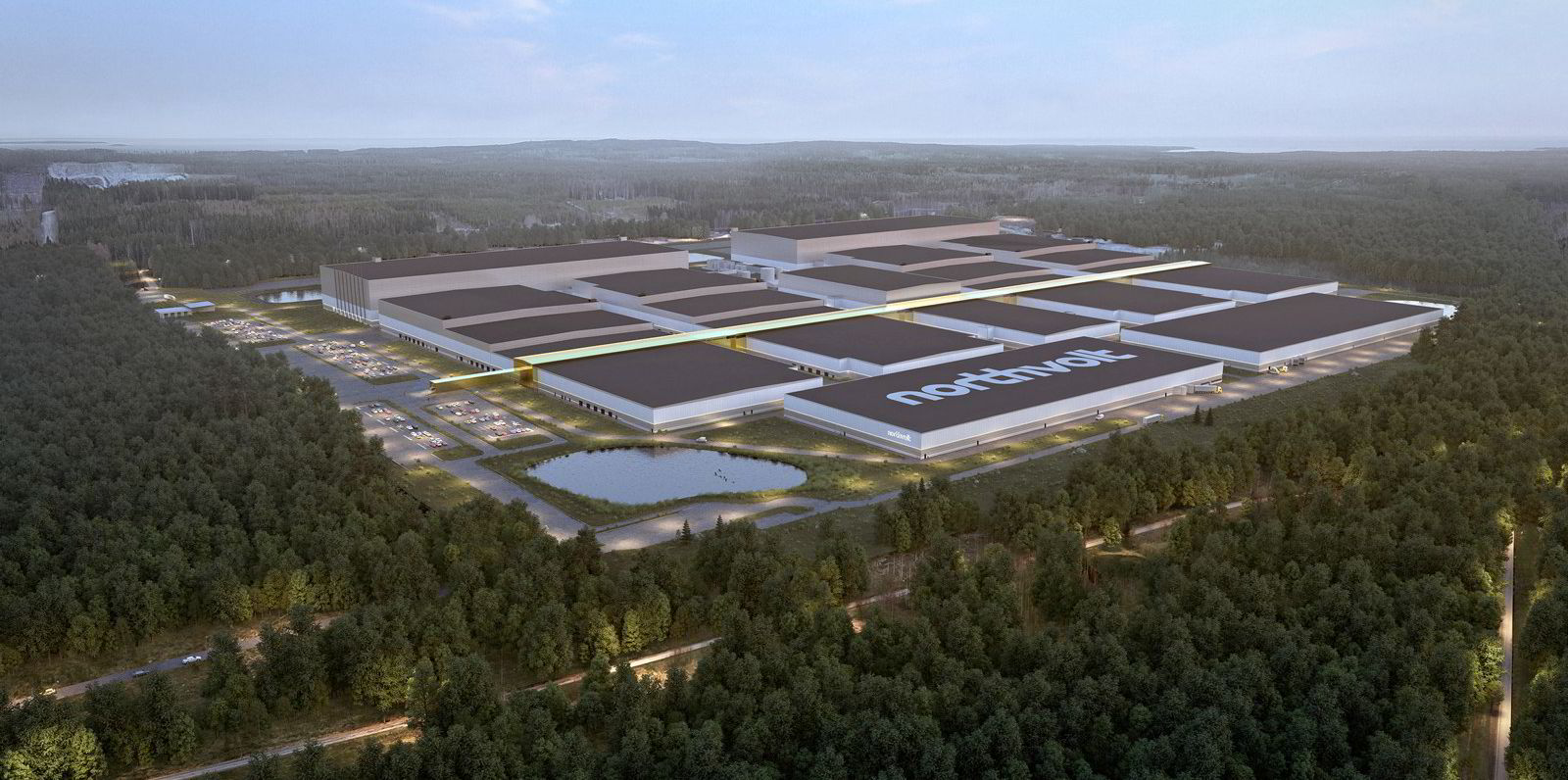Volkswagen-backed Swedish battery and storage specialist Northvolt has started construction on its third battery gigafactory in northern Germany, which German Chancellor Olaf Scholz said will be large enough to churn out batteries for one million electric cars per year.
The gigafactory, called Northvolt Drei, will use abundant wind from the region near the Heide site north of Hamburg to mass produce what the company says are the ‘world’s greenest batteries for the automotive, industrial and energy sectors’.
“Investments such as that of Northvolt are of strategic importance for our country and for Europe,” Scholz said.
“The production of good cars beyond the combustion engine continues to form the backbone of our industrial sector. For that, we need battery cells made in Germany, made in Europe.
“It is therefore good news for our entire country that, here in the north, battery cells produced in a climate-friendly way will be manufactured for one million cars a year in the future.”
German Vice-Chancellor and Economics and Climate Minister Robert Habeck also participated in the construction start ceremony, as did the state premier of Schleswig-Holstein state Daniel Günther, and Northvolt CEO and Co-Founder Peter Carlsson.
Subsidies and jobs
Germany’s federal government and the state of Schleswig-Holstein have pledged to contribute €902m ($977m) out of the €4.5bn overall investment in the Northvolt Drei factory, an elevated level of support questioned by German media and economists as being part of an unhealthy subsidy race.
The industrial complex is planned to employ about 3,000 people and is slated to have a maximum annual production capacity of 60GWh, starting first operations in 2026. Another 10,000 jobs are expected to be created in the surroundings of the factory, Scholz said, pointing to forecasts.
The small state of Schleswig-Holstein, sandwiched between the North and Baltic Sea coasts, is ideally located for new green energy industries.
Germany’s northernmost state in 2022 could have met 170% of its power consumption with renewable energy, thanks to a way above-average wind power capacity.
Schleswig-Holstein last year added another 1.2GW in new wind power capacity, or about a third of Germany’s total, according to data compiled by Deutsche Windguard. The state at the end of 2023 featured a cumulated onshore wind volume of 8.5GW, or 14% of all wind capacity installed in Germany.
“Germany's industrial heart will of course continue to beat in Munich, Wolfsburg [the seat of Volkswagen], Stuttgart and many other very traditional locations,” Scholz said.
“But in the future, it will also beat here on the northwest coast.”
Northvolt, which counts BMW, Volkswagen and Volvo among its customers, in 2021 had started operations at its first lithium-ion gigafactory at Skellefteå in northern Sweden. The company is also building a battery gigafactory and research centre in Gothenburg, Sweden, and in Montreal, Canada, and has a battery module assembly in Poland.


